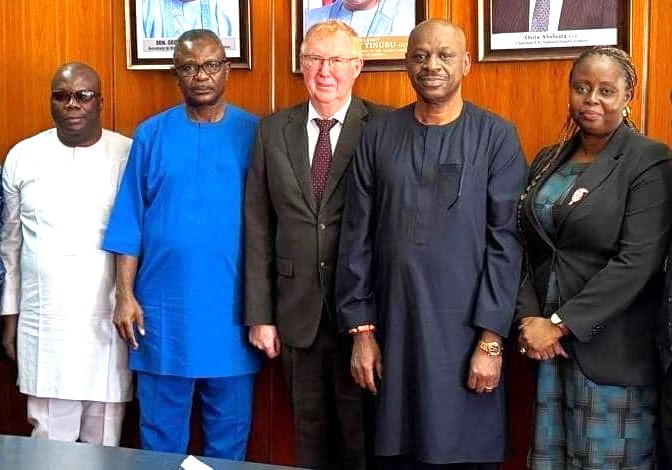The National Quality Council (NQC), in partnership with the British Standards Institute (BSI), recently organized a “Train the Trainers” workshop for Nigerian stakeholders focused on administering and completing a matrix for gathering critical data to support the effective implementation of the Nigeria National Quality Policy (NNQP).
In his opening remarks, NQC Chairman and Chief Executive Officer, Osita Aboloma, highlighted that the workshop was part of a series of capacity-building programs under the Standards Partnership Programme (SPP), a collaboration with the BSI. He explained that the workshop aimed to empower Nigerian stakeholders to take ownership of the NNQP, ensuring the collection of accurate and relevant data to inform its implementation.
Represented by his Chief of Staff, Bola Fashina, Aboloma shared that the SPP is facilitated by the UK’s Foreign, Commonwealth, and Development Office (FCDO) through its Centre of Expertise projects. These initiatives are designed to support the effective rollout of the NNQP and foster smoother trade relations between Nigeria and the United Kingdom.
Aboloma also acknowledged the valuable expertise being shared with Nigerian stakeholders since the SPP’s launch in September 2023, emphasizing that the current workshop marked the second phase of the program. He stressed the importance of leveraging Nigeria’s leadership within Africa in drafting and approving a National Quality Policy and establishing a dedicated government body for its implementation. These efforts, he said, would drive the rapid development of Nigeria’s quality infrastructure, including standards, accreditation, metrology, and conformity assessment, ultimately boosting the competitiveness of Nigerian-made products amid the African Continental Free Trade Area (AfCFTA) agreement and the increasing global focus on quality.
Workshop lead facilitator, Mike Peet, explained that the session was designed to help Nigerian stakeholders update existing data, identify gaps in the National Quality Infrastructure, and develop implementation strategies to address these gaps through a pilot project to be scaled up later. He expressed his appreciation for the broad participation of both public and private sector stakeholders, commending the NQC for its effective mobilization efforts.
Peet noted that the African continent was looking to Nigeria as a model for implementing the NNQP and encouraged participants to commit fully to their roles in meeting these expectations. He also emphasized that participants would be responsible for sharing the knowledge and insights gained from the workshop with other stakeholders during the NNQP implementation process.
The workshop saw the participation of key public sector representatives from the National Quality Council, the Federal Ministries of Industry, Trade and Investment, and Agriculture and Food Security, the Standards Organisation of Nigeria (SON), the National Agency for Food and Drug Administration and Control (NAFDAC), the Nigerian Agricultural and Plant Quarantine Service (NAQS), the Nigerian Export Promotion Council (NEPC), the Federal Competition and Consumer Protection Commission (FCCPC), and the National Action Committee on the African Continental Free Trade Area Agreement (NAC-AfCFTA).
Private sector participants included representatives from the Nigeria National Accreditation Service (NiNAS), the Manufacturers Association of Nigeria (MAN), the National Association of Chambers of Commerce, Industry, Mines and Agriculture (NACCIMA), the National Association of Small-Scale Industrialists (NASSI), the National Association of Small and Medium Enterprises (NASME), the Nigerian Employers Consultative Association (NECA), the Institute of Public Analysts of Nigeria (IPAN), and the Nigeria Agribusiness Group (NABG).

